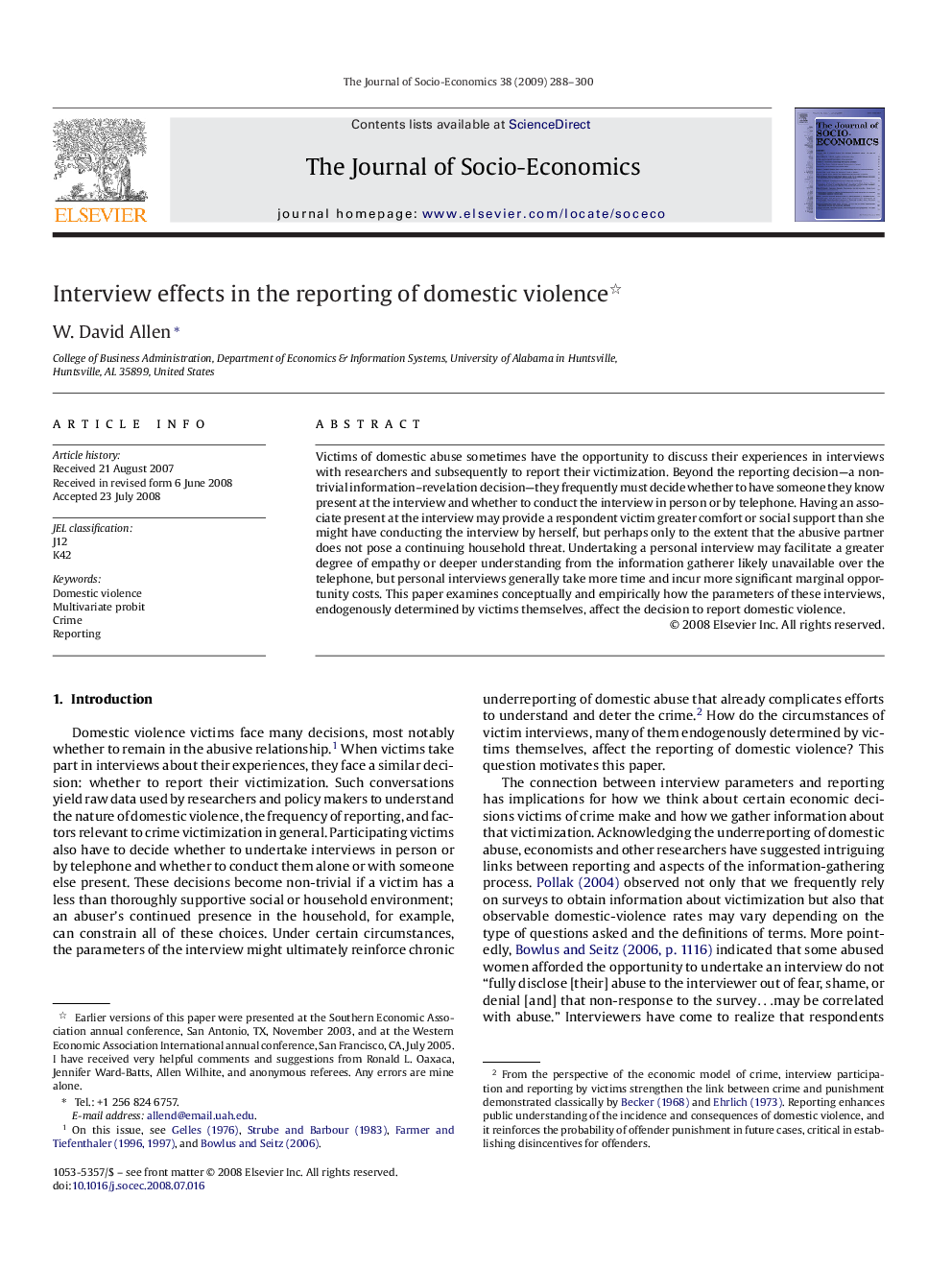| Article ID | Journal | Published Year | Pages | File Type |
|---|---|---|---|---|
| 970184 | The Journal of Socio-Economics | 2009 | 13 Pages |
Victims of domestic abuse sometimes have the opportunity to discuss their experiences in interviews with researchers and subsequently to report their victimization. Beyond the reporting decision—a non-trivial information–revelation decision—they frequently must decide whether to have someone they know present at the interview and whether to conduct the interview in person or by telephone. Having an associate present at the interview may provide a respondent victim greater comfort or social support than she might have conducting the interview by herself, but perhaps only to the extent that the abusive partner does not pose a continuing household threat. Undertaking a personal interview may facilitate a greater degree of empathy or deeper understanding from the information gatherer likely unavailable over the telephone, but personal interviews generally take more time and incur more significant marginal opportunity costs. This paper examines conceptually and empirically how the parameters of these interviews, endogenously determined by victims themselves, affect the decision to report domestic violence.
